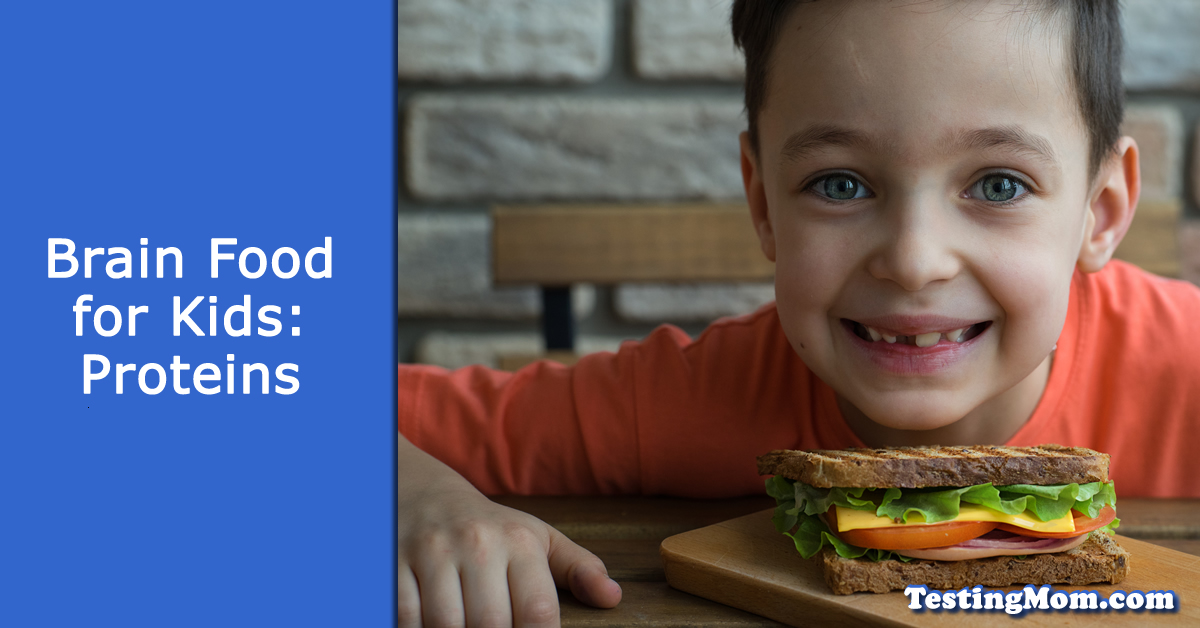Brain Food for Kids: Protein
Children need healthy proteins daily to grow and develop properly. When your child eats foods that contain protein, the digestive juices in his or her stomach and intestine go to work. The protein is broken down into basic units called amino acids, which can be reused to make the proteins his or her body needs to maintain muscles, bones, blood, and body organs!
| Age of Child | Amount of Protein Needed Daily (from The Institute of Medicine) |
|---|---|
| 1-3 years | 13 grams |
| 4-8 years | 19 grams |
| 9-13 years | 34 grams |


Protein
Fish: Fish such as salmon, tuna, mahi-mahi, and shrimp are excellent sources of protein, as well as omega-3 fatty acids! High protein foods are essential for neural function, sustained focus, and efficiency. If your child is not a fan of fish, supplements such as fish oil capsules can help give a dose of omega-3’s.
Helpful tip: Grilled or seared salmon with a marinade can be an excellent post-study dinner. It is a great way to provide your child with the nourishment they need for their next big day! If you’re looking for a snack that integrates fish, try tuna fish. Drizzle a little lemon, salt, and pepper for a healthy, quick, and easy snack that packs a punch of protein! Your child may enjoy it on top of a rice cake or English muffin!
Here are a few other protein-dense foods. Many of these options are great ways to satisfy both your protein and vegetable food groups. If your child is vegetarian or vegan, these veggies (when combined with other foods) can combine for a high protein meal. Many of these options, particularly beans are high in folic acid, which enhances memory recall.
- Beans
- Lentils (18 g/ per 1 cup)
- Chickpeas (12 g/ per 1 cup)
- Pinto (12 g/per 1 cup)
- Black beans (15 g/per 1 cup)
- Lean Meats
- Turkey (27g/ per serving)
- Skinless Chicken (18g/ per serving)
- Lean Ground Beef (14g/ per serving)
- Vegetables
- Broccoli (5g/per serving)
- Spinach (5g/ per serving)
- Cauliflower (5g/per serving)
- Dairy
- Greek yogurt (10g/ per serving)
- Cottage cheese (15g/ per 1/2 cup)
- Milk (8g/ per 1 cup)
- *Eggs (6g per cup)
*The protein contained in eggs is considered to be the highest quality protein out of all foods.
The word protein is derived from the Greek word ‘proteios’ which means “primary” or “in the lead” and would indicate that proteins are a vital and foremost part of growth and health for children. Protein is essential for life, it is crucial to all cells in the body playing a key role as enzymes in a cell. In fact, after water, protein is the most plentiful substance in the body! So when test day rolls around, your child will not only be mentally prepared, but physically, as well!
Healthy Food Series:
